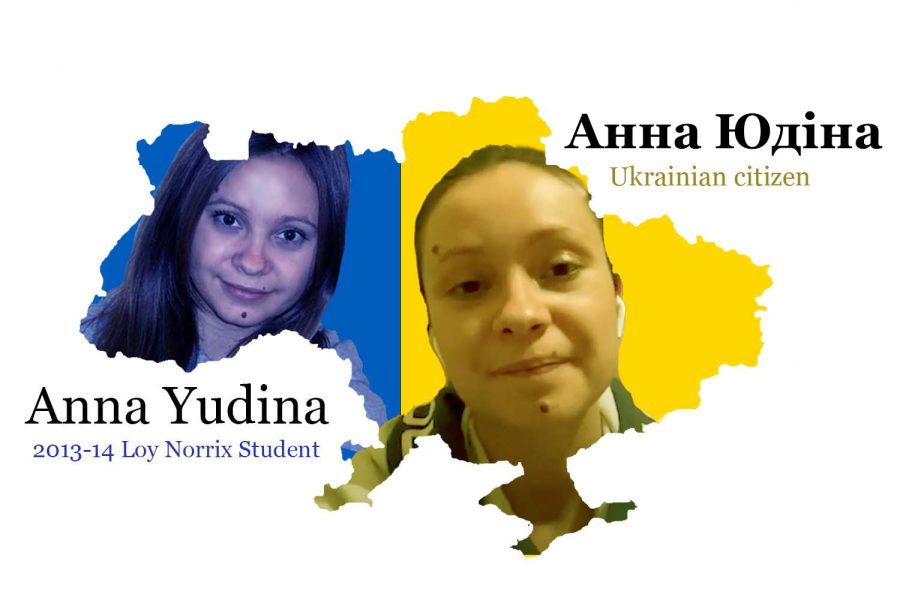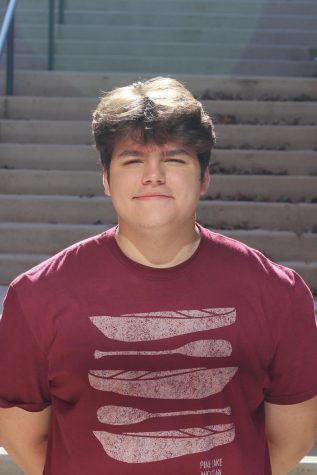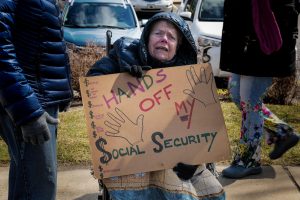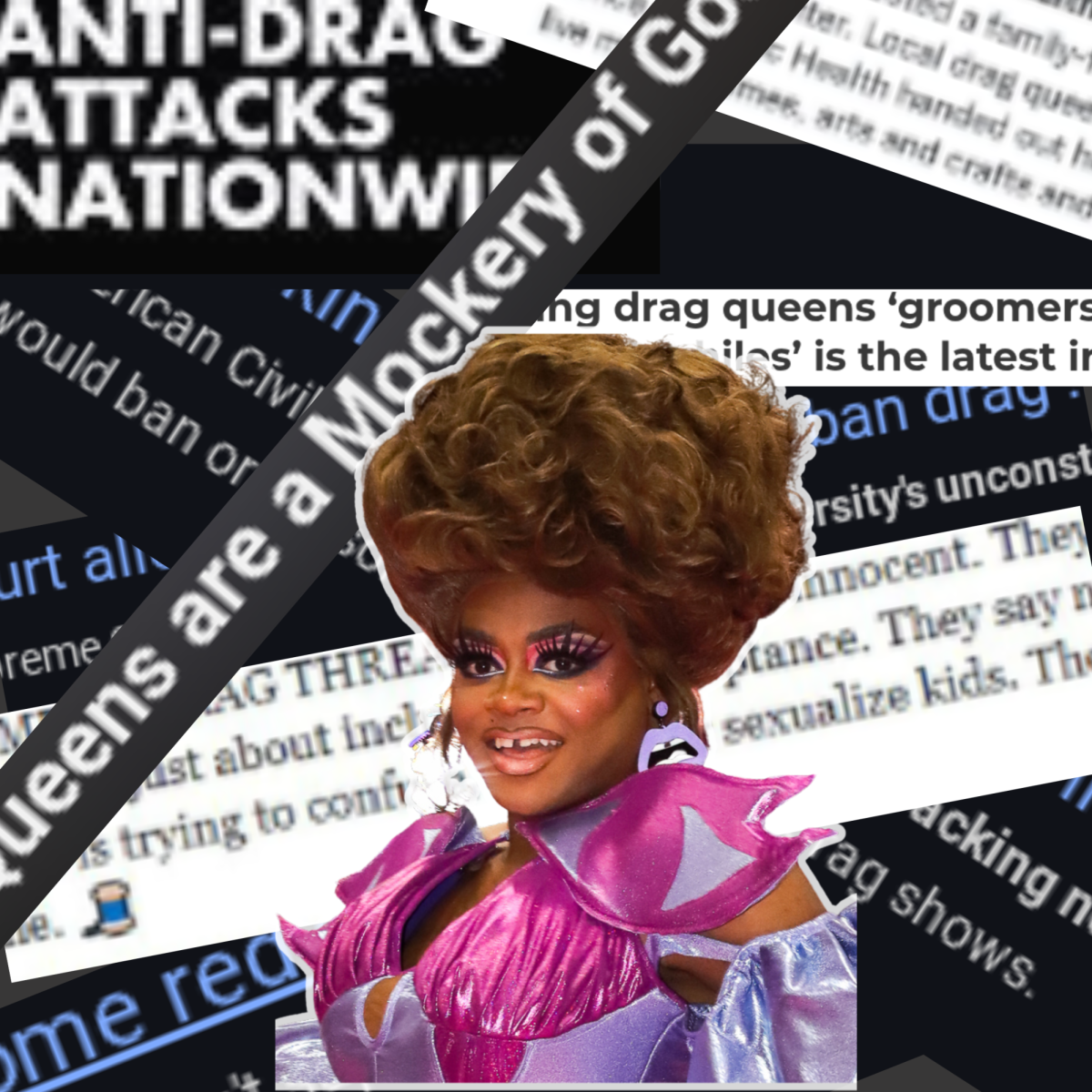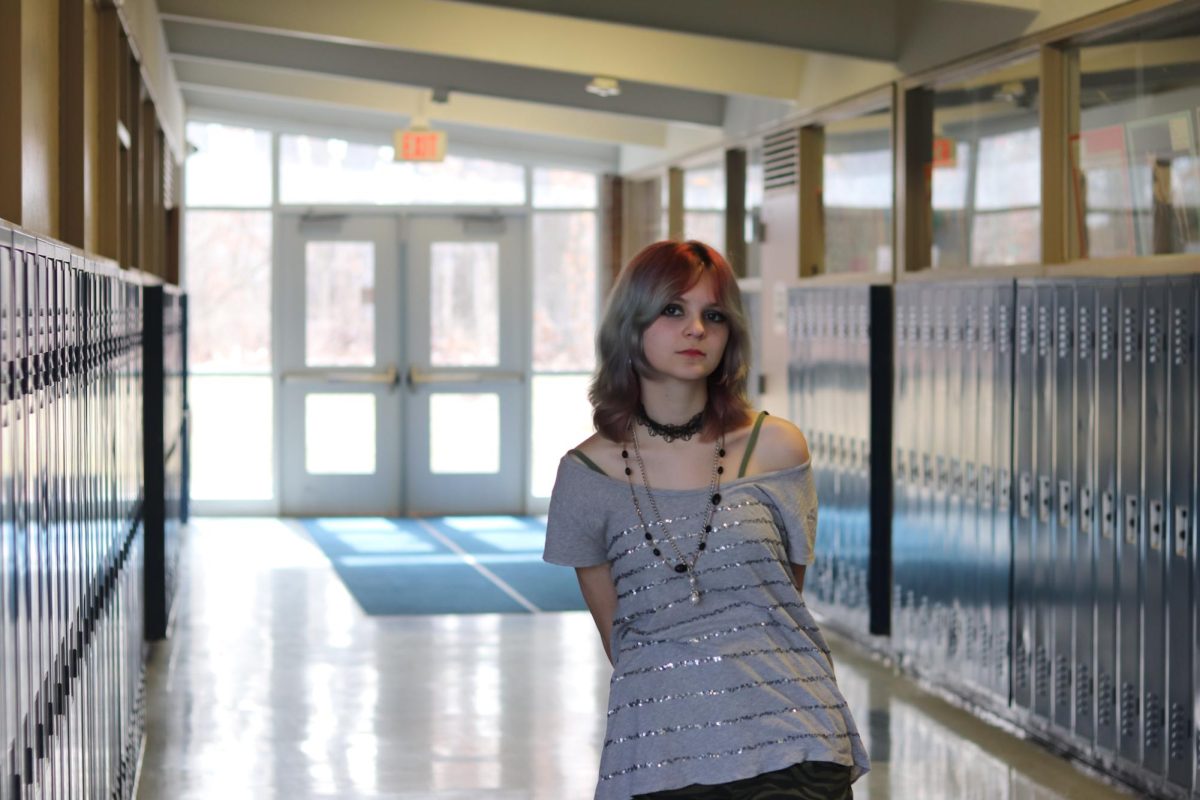In Ukraine, Loy Norrix alumni flees from Kyiv amid Russian invasion
Russia’s actions in Ukraine not only breaches international covenant but puts the lives and livelihoods of civilians at dire risk
Credit: James Hauke
March 18, 2022
Every morning, students from across the Kalamazoo area pack up books, binders, and school-issued chromebooks, fitting them into one of the most ubiquitous symbols of high school– the backpack. Look through the hallways of Loy Norrix and nearly every back is adorned with one of them, whether small and compact, or the heavier and larger backpacks of those who take on extra weight in textbooks.
But it is hard to imagine fitting your entire life into one backpack, taking everything you need to survive and leaving so much behind. This is what Anna Yudina, former foreign exchange student at Loy Norrix and Knight Life alum, faced when Russia invaded Ukraine, and forced her to flee her home in Kyiv with only 2 bags – 2 bags that could mean life or death in such chaotic times.
This is the struggle facing many Ukranians today. As their nation is invaded and their choices lay between occupation and risk of shelling and airstrike, or fleeing further west. This has made many citizens of the Eastern European nation into refugees, packing up as much of their life as possible, often into no more than a humble backpack.
What Norrix students often see as a burden, for these millions fleeing their homes for safety from bombardment, it is life itself.
At 6 a.m. Moscow time or 10 p.m. Eastern Standard Time, on Feb. 24, Vladimir Putin, who has been either the president or prime minister of the Russian Federation since 2000, declared that he would be conducting a “special military operation” in Ukraine.
Putin’s stated goal was “demilitarisation and denazification” of the nation and immediately, Russian missiles, bombers, and forces both on foot and in tanks crossed the Ukranian border from the north, south and east.
At the same time, Anna Yudina, former foreign exchange student at Loy Norrix and Knight Life alum, was in her new apartment, located in the Ukranian capital of Kyiv.
According to AP, Russian forces would be within 7 miles of Kyiv only a day after entering the nation, putting Yudina near the frontlines of the largest Russian military operation since the Cold War.
Only a number of days earlier, invasion seemed unlikely to many, whether in Ukraine, Russia or the United States. Russia had announced a pullback of forces on the border, and cited the end of training exercises as the reason for this, according to the Washington Post.
Putin criticized Ukrainian and Western paranoia, but cyber attacks on Ukrainian banking systems continued, hand-in-hand with the continued support of separatist movements in Eastern Ukraine and the continued Russian occupation of Crimea.
Many in the United States assumed the issue resolved, echoing views such as Harlan Ullman’s, who wrote in the article “Why Putin won’t invade Ukraine” from the Atlantic Council that “Vladimir Putin faces a Ukrainian paradox he cannot resolve by unleashing his army on the former Soviet republic.”
Yudina herself is the same as most Ukranians. Similar to Americans, some took the conflict as an opportunity to crack jokes, trying to lighten the mood. Yudina and many other Ukranians assumed that the “training exercises” on the border were only a lead-up to an escalation in the Donbas region, where fighting between Russian-backed separatists and Ukrainian government forces have been ongoing since 2014.
Past incursions, such as the one into Crimea, were limited in scope, and most people assumed Russia would not launch a full-scale invasion of Ukraine, much less an all-out attack on the capital of Kyiv.
The hopes for a limited escalation of violence were dashed when Russian forces advanced deep into the nation at all haste, and despite Ukrainian attempts at resistance, urban centers and rural areas faced threats of capture or are already in the hands of the Russian army.
Millions of Ukrainians, either to flee the encroaching army, avoid being forced to fight or escape the economic effects of the war, have fled west. Already hundreds of thousands have crossed the border into Poland, Romania, Slovakia and Hungary.
When Yudina was forced out of her home, she became one of millions of Ukrainians now seeking to move further west or leave the country for foreign refuge.
While the Russian occupation has been limited to regions relatively close to the border, air strikes have been reported across the nation. As such, many Ukranians, even the elderly, young and those who are forced to travel alone, are in treacherous conditions. The situation is dire for men as well, as those between the ages of 18 and 60 are barred from leaving Ukraine in order to be available to be conscripted as soldiers should the situation call for such.
Despite losses of land and lives, the Ukranians still can count on one thing: leadership. President Volodymyr Zelenskyy, who’s been in office since 2019, has served as a symbol for inspiration within Ukraine and outside of it. He, in sharp contrast to the majority of leaders throughout history, has refused to flee from the frontlines and instead continues to govern and direct the war effort from the capital, even as it lays under siege by the Russian army.
According to Jim Olson from Fast Company, Zelenskyy exhibits leadership qualities such as conviction, courage, composure, communication, and compassion, all of which allow him to lead his people through this tough time.
Yudina expressed that the nation has largely united behind him. Rather than the lesser of two evils view that many Ukranians had towards Zelenskyy before the invasion, he is now seen as a force of good in the nation.
In the most recent State of the Union address, U.S. President Joe Biden talked extensively about financial and moral support for Ukraine and efforts to harm Russia’s economy such as sanctions and efforts to freeze the assets of Russian oligarchs. Biden also stated, ”Let me be clear, our forces are not engaged and will not engage in conflict with Russian forces in Ukraine.”
Opinion in the U.S. is divided on if the U.S. should amp up support for Ukraine and to what degree.
Despite Ukrainian forces managing to fight off Russians in some areas and putting up stubborn resistance on several fronts, the odds are stacked against Ukraine, especially in the face of Western apprehension to get directly involved in the war. And while Russia has a clear numbers advantage on land, it has an even greater advantage in the sky.
In the article “How The Russian And Ukrainian Air Forces Stack Up Against Each Other” published in the Drive, Thomas Newdick states, “Ultimately, Ukraine possesses a relatively tiny military force staring down a much larger one,” and that “For Moscow, air superiority is likely assured.”
Life has not only changed for those fleeing or those fighting, but Ukranians who stayed in their communities and residences have faced severely altered lives. The entire nation is under a constant State of Emergency, declared on Feb. 23. Furthermore, many men are facing conscription into the military.
Ukranians from all walks of life have been forced to stay underground, finding shelter in basements, subway tunnels, or bunkers for weeks on end, remaining in hiding due to sustained Russian artillery and missile strikes.
According to Refugee Health in “Traumatic Experiences of Refugees,” the effects of being displaced and living through chaotic times of war or crisis can leave deep and often permanent mental scars. This trauma can manifest in a variety of ways, including Post Traumatic Stress Disorder, or PTSD. Even those who didn’t directly experience violence or other direct experiences can be left deeply affected by displacement and prolonged separation from their previous home.
For Yudina, life continues, despite the chaos of the war. As stated earlier, she is attempting to find shelter in the western region of the nation, helping out those around her however she can, using experience from previous job, working in public relations for a healthtech company. Yudina, like many Ukranians, has dedicated herself to helping those around her in the time of crisis.
Viral videos such as “Making Molotov Cocktails, Ukrainian Civilians Prepare To Defend Homes” from Radio Free Europe show how locals are directly supporting the war effort, making incendiary weapons for the Ukrainian Ground Forces.
Recently, a ceasefire was declared by both sides and according to “Ukraine maps: Ceasefire allows people to leave cities,” by The Visual Journalism Team of the BBC, “A ceasefire has been agreed to allow civilians to leave the city of Sumy and the town of Irpin, near Kyiv.”
Despite this, Ukranians, civilians and soldiers alike, face grave danger every day. The mental toll of the war has been great and for Yudina, even daily life carries the shadow of conflict.
Russian and Ukrainian forces have repeatedly signed temporary ceasefires in certain regions, though violations of the terms and resumption of hostilities before the agreed time has been rife throughout the Russian ranks.
Yudina still cherishes the hope that she once found in the United States. As seen earlier, one of the three bags she brought with her to flee Kyiv was the Jansport backpack that she bought on the second day of school at Loy Norrix in Michigan. That backpack has gone from one world to another – from carrying books to carrying clothes and food.
In this time of crisis, the old norms of society have broken down. Any sort of ‘normal’ for Ukranians, whether in their nation or abroad, is a distant possibility as fighting drags from days, to weeks, into likely months.


